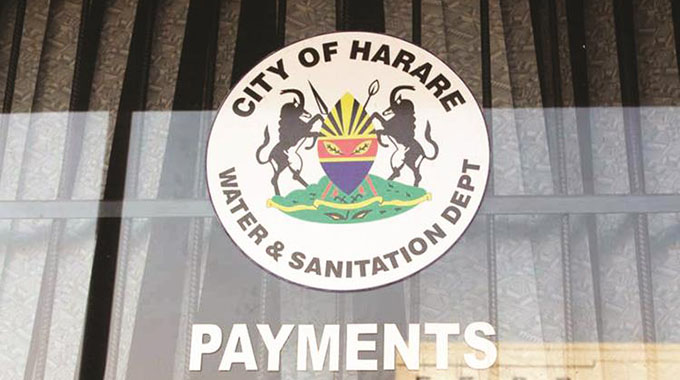Why an efficient billing system is a must

Beaven Dhliwayo Features Writer
Harare City Council’s dysfunctional billing system has attracted an outcry from residents, most of whom feel that the system will milk significant amounts of their hard-earned money in rates payments. HCC is now using a new software called Sage Pastel for billing. While some agree that this is a necessary alternative after the previous system was blocked by the service provider, there are issues that council needs to attend to urgently.
The local authority migrated to a new billing system after it failed to pay for a highly criticised BIQ billing system, prompting Quill Associates, the South African system developer, to discontinue its services.
When BIQ terminated its services council engaged Enterprise Resource Planning Systems for its bills. As fate would have it, the new system is also plagud with controversy after HCC and SAGE Group prematurely settled the deal without the authority of the Procurement Regulatory Authority of Zimbabwe (PRAZ) as per the laws of the country.
All tenders above $300 000 have to go through PRAZ yet HCC chose to act otherwise, further exposing the calibre of management at the local authority.
This clearly shows lack of seriousness and corrupt tendencies on the part of HCC on service delivery.
The system left many ratepayers stranded because HCC resorted to manual receipting that had no updates on all the payments made by residents.
Furthermore, the system is not giving ratepayers access to information regarding their accounts.
When the billing blackout took place, there is evidence that council did not manage to retrieve all information on account holders which include payments and amounts owed by ratepayers.
What this means is that bills that have been printed recently do not reflect any payments made, especially for those residents who were faithful in paying their bills.
Now council is charging Harare residents based on estimates and one wonders who is coming up with the figures that have left many residents crying foul.
A visit to Rowan Martin Building by The Herald showed that residents are frustrated and are in need of explanations on the exorbitant charges they are being made to pay by HCC.
Said Passmore Nyanzira of Mufakose: “I don’t know when I will get a statement of my payments and I am confused whether the balance on this receipt is correct or I am being duped because there is no proof of this bill.”
It seems everyone now owes exorbitant and sometimes unrealistic amounts to council, yet the authority last printed bills up to July 2019, and some even much earlier.
Secondly, residents who have raised concern on the bills have ben treated rudely by council workers who seem unwilling to address the billing queries.
Director of the Combined Harare Residents’ Association (CHRA) Mrs Loreen Mupasiri Sani told The Herald that there is so much that needs to be done at HCC to improve on service delivery.
“Although council has a complaints desk, its workers lack etiquette in terms of customer care. This current situation will militate against council’s revenue collection efforts as the frustrated residents will simply withhold their money. Even those who were faithful in paying no longer see the value as their bills also indicate outstanding payments,” she said.
Mrs Mupasiri added that HCC should buckle up and take residents seriously as some of them have been paying in the absence of printed bills but such payments seem to have disappeared into thin air.
It is high time HCC worked on improving its reputation as the authority is marred by cases of suppliers and council workers involved in scams on overpayment, fake quotations and quotations with common authorship, among other dishonest methods used in siphoning millions that could be directed towards service delivery.
Although the system is still giving residents some headaches, dumping the BIQ billing system is a noble move as it was expensive to run and maintain.
The local BIQ agent, Group View Technology, was not adding much value to HCC as its employees had limited BIQ technical skills.
Hence, the perpetual engagement of the vendor required payment in foreign currency to bring them in from South Africa.
Furthermore, although the city has a backlog of three months for water statements the new system is commendable in that upon payment the receipt indicates your balance.
Residents on their part must pay for services rendered to them so that the city can collectively improve on potable water supply, road infrastructure and refuse collection among other services.










Comments